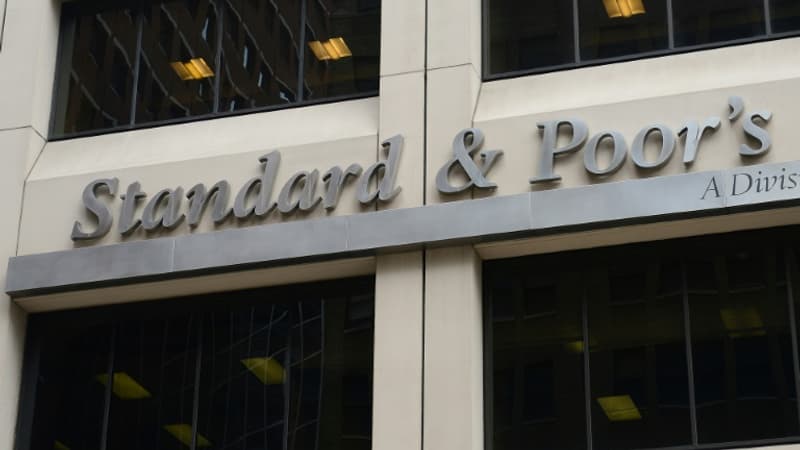The influential rating agency S&P Global Ratings will have to say on Friday whether or not to lower France’s financial rating, while Bercy fears a downgrade that would be synonymous with sanctioning the government’s economic policy.
S&P closes autumn reviews of France’s main rating agencies. Its current AA rating is equivalent to Moody’s Aa2. Fitch is one notch below with AA-, after having lowered France’s rating in April.
But while Moody’s assigns a “stable” outlook to its rating, S&P has a negative outlook, a sword of Damocles that everyone is wondering will fall on French public finances on Friday in a context of high interest rates.
“Anything is possible, they are the ones who decide. But I think we have provided solid arguments about the credibility of our determination to reduce the debt, to reduce the deficit below 3% (until 2027, ed.) and to maintain public spending” , commented on Friday, the Minister of Economy and Finance, Bruno Le Maire, about France Inter.
Throwing “billions of euros out the window”
“We are reducing public spending, we are reducing the deficit and we are accelerating the reduction of public debt,” he insisted, promising to reach a deficit of 4.9% by 2023.
He also noted, last week on Franceinfo, that a deterioration in France would result in throwing “billions of euros out the window” to pay debt interest that could still be increased by the markets.
Despite a 0.1% contraction in French economic activity in the third quarter, Bruno Le Maire still expects growth of 1% this year and then 1.4% in 2024.
In a slow-moving European economic context, the consensus of economists for the croissance of France is 0.8% for 2024, and the rejoint mercredi for the OECD, which will increase 1.2% in September.
“Risks” in the execution of budget objectives
In June, S&P warned of “risks” for the execution of budgetary objectives and, therefore, for the ability to reduce a debt of more than 3 trillion euros, whose annual repayment will become the first item of State spending in 2027, before Education.
The agency, with which Bercy communicates regularly, was particularly concerned that the absence of an absolute majority in Parliament would prevent the government from implementing its economic texts.
You can rest easy on this point, at least for the moment. For the nineteenth time since she was in Matignon, Elisabeth Borne used on Sunday, for the revenue part of the social security budget, article 49.3 of the Constitution which allows the Prime Minister to approve a text without a vote, and this in the midst of a virtual general indifference. .
Greater degradation
But “even if France maintained an AA rating this time, the risk of further deterioration would remain,” he notes, for example, if debt is not reduced quickly enough.
According to a government advisor, a deterioration would be equivalent to “calling into question the results of French economic policy.”
The European Commission warned in November that France was at risk of not being online by 2024, and that a somewhat glorious excessive deficit procedure could hit the country next June.
For the first president of the Court of Auditors, Pierre Moscovici, interviewed in Europe 1, with a level of 109.7% of GDP expected for next year, the debt constitutes a burden “that paralyzes public action.”
However, he has “the feeling that the Government has understood that it is necessary to make an additional effort.”
Bruno Le Maire is putting forward proposals to ensure full employment and reduce public spending, such as reducing the duration of compensation for the unemployed over 55.
Source: BFM TV


